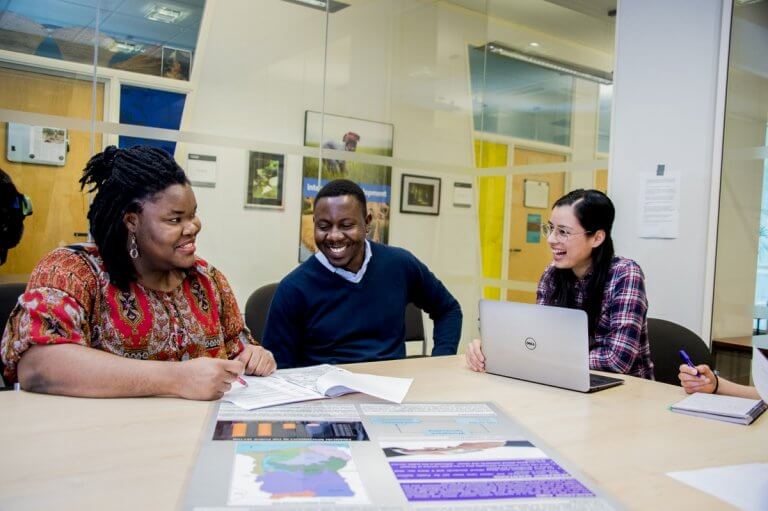
Every month, global media outlets are crammed with stories that relate to difficult social and economic issues surrounding poverty, malnutrition, education, healthcare and human rights.
For as long as these issues exist, experts in the field of international development dedicate their lives to the fight for a better world.
As highlighted in the Overseas Development Institute (ODI) Horizon 2025 report, “By 2025, the locus of global poverty will overwhelmingly be in fragile, mainly low-income and African, states, contrary to current policy preoccupations with the transitory phenomenon of poverty concentration in middle-income countries. Moreover, a smaller share of industrialised country income than ever before will potentially close the remaining global poverty gap.”
Not only that, but the disruption of international development architecture will continue with “New institutions, business models and practices challenging long-established ‘aid industry’ actors. Agencies providing development finance for improved social welfare, for mutual self-interest in growth and trade and for the provision of global public goods will find that, in each area, disruptors to their programmes may force a change in positioning.”
So, with a sea of change sweeping our global landscape by 2025, there’s no better time to integrate your passion for international development than with a school that greatly values social responsibility.
One such academic institution that promotes global consciousness is the UK’s University of Manchester.
As the UK’s largest university-based postgraduate centre specialising in international development, the GDI deploys a three-pronged approach to achieve its vision: producing and co-producing research that extends knowledge frontiers; ensuring research has a positive impact on policy and practice; and educating future generations of researchers and development leaders.
Home to a multicultural community of 450 students from 30 countries, with the combined field experience of staff covering 60 countries, the GDI gathers learners from all backgrounds and encourages them to embrace social-responsibility and pursue their academic ambitions.
By opting for their MSc International Development programme, you’ll be able to choose from seven specialist courses, including Poverty Conflict and Reconstruction; Environment Climate Change and Development; Trade and Industry; and Politics, Governance and Development Policy.
This course is perfect for students who are interested in developing countries and are looking to gain the capacity and skills needed to think critically about development.
“I chose the University of Manchester because, unlike other universities who pursue generic courses that I can find almost anywhere in the world, they provided me with a customised Master’s programme which was very well placed in providing me with the answers to the puzzles that I solve,” notes Kwame Kwarteng, a student of MSc International Development specialising in Globalisation, Trade and Industry. His focus is now set on upscaling the businesses of local artisans in Sub Saharan Africa by working with policymakers in the cocoa sector.

Kwame Kwarteng, MSc International Development specialising in Globalisation – University of Manchester
A truly interdisciplinary course, the programme will provide you with insights and professionally-orientated skills through a range of optional courses in areas such as policy analysis, climate change and development, conflict and reconstructions, planning and managing development and poverty reduction.
Many courses at the GDI also involve mandatory overseas fieldwork, giving you the experience of social and economic development in action, with the opportunity to observe development interventions in certain areas.
To drive ideas, the Institute hosts seven key groups: digital development; migration, refugees and asylum; urban futures; growth and distribution; politics, governance and management; global production networks, trade and labour; and agrarian change and political ecology.
The high quality of research conducted here has led to the most recent Research Excellence Framework ranking the GDI first for impact in Development Studies in the UK. By integrating a research-informed approach to teaching and learning, you’ll have the chance to figure out where you’d like to specialise, to embark on various field trips in the UK and overseas and attend regular lectures from high-profile global researchers and practitioners.
Ultimately, the encompassing goal of the Global Development Institute is to forge change not just in emerging and poorer countries, but also in the societies of advanced industrial countries.
As the world shifts to green growth, technology-sharing, sustainable lifestyles and reduced inequality, radical change will be needed across the world and its higher education system in order to make an everlasting impact.
Follow the University of Manchester on Facebook, Twitter, YouTube, Google+ and Instagram
To find out more about international development at Manchester click here
Liked this? Then you’ll love…
Data Science: The ideal degree for the information era
Structuring our cities: 5 global leaders of Built Environment education







